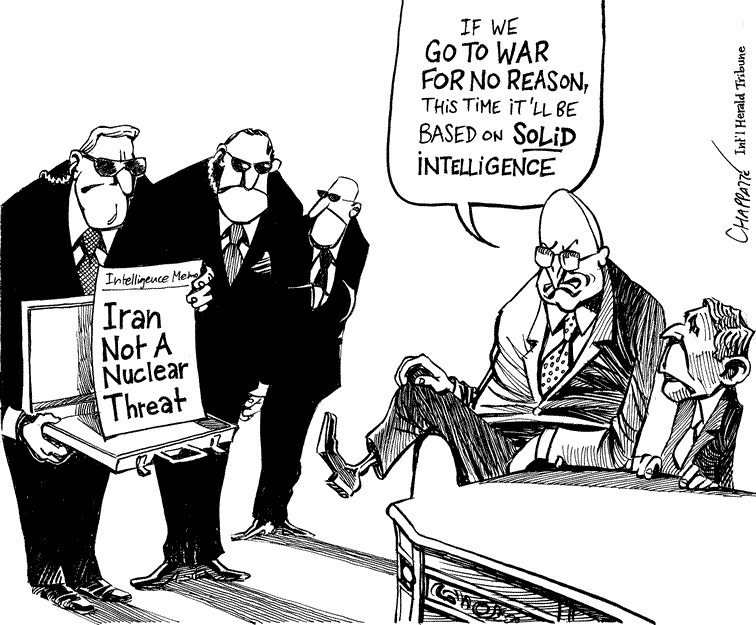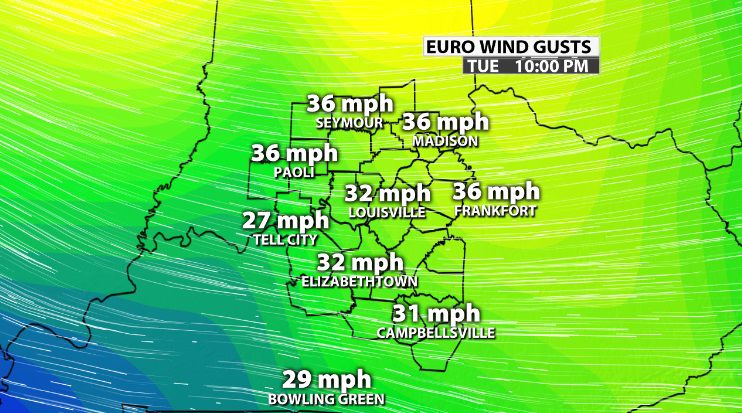The Iran Nuclear Issue: Heightened Israeli Concerns Under Trump

Table of Contents
Trump's Withdrawal from the JCPOA and its Ramifications
Trump's decision to withdraw the United States from the JCPOA in May 2018 marked a significant turning point in the Iran nuclear issue. This unilateral action reversed years of international diplomacy aimed at preventing Iran from developing nuclear weapons. The rationale behind Trump's decision was multifaceted, primarily centered on his belief that the deal was fundamentally flawed and insufficiently restrictive on Iran's nuclear ambitions. He argued that the "sunset clauses" – provisions that allowed certain restrictions to expire after a set period – posed an unacceptable risk. His administration implemented a "maximum pressure" campaign, re-imposing stringent sanctions on Iran to cripple its economy and force it to negotiate a more comprehensive agreement.
- Re-imposition of sanctions on Iran: These sanctions targeted Iran's oil exports, financial institutions, and key industries, severely impacting its economy.
- Impact on Iranian economy and international trade: The sanctions led to a sharp decline in Iran's GDP and limited its ability to engage in international trade. This economic pressure became a central element of Trump's strategy.
- Increased regional instability: The withdrawal exacerbated tensions in the Middle East, as Iran responded aggressively, escalating its nuclear activities and proxy conflicts.
- Shift in US foreign policy towards Iran: The withdrawal signaled a complete shift in US foreign policy towards Iran, abandoning diplomacy in favor of a confrontational approach.
This shift directly impacted Israeli national security. Israel viewed the JCPOA with skepticism from its inception, arguing that it didn't adequately address Iran's ballistic missile program or its regional destabilizing activities. Trump's withdrawal, while initially welcomed by Israel as aligning with its own hardline stance, also raised concerns about the potential for wider conflict and the possibility of Iran accelerating its nuclear program.
Israeli Security Concerns Regarding Iranian Nuclear Capabilities
Israel has historically harbored deep-seated apprehension about a nuclear-armed Iran. This concern stems from Iran's stated ambition to destroy Israel, coupled with its long-standing pursuit of advanced nuclear technology.
- Israel's assessment of Iran's nuclear program: Israeli intelligence services closely monitor Iran's nuclear activities, and their assessments play a key role in shaping Israeli policy. They express concerns about the potential for Iran to quickly weaponize its nuclear program should it choose to do so.
- Concerns about Iran's ballistic missile program: Israel is also highly concerned about Iran's expanding ballistic missile capabilities, which could be used to deliver nuclear warheads. This capability poses a direct threat to Israel's national security.
- Perceptions of Iranian regional ambitions and support for proxy groups: Israel views Iran's support for Hezbollah, Hamas, and other proxy groups as a significant threat, particularly given the possibility of these groups acquiring nuclear weapons or materials.
- Fear of a nuclear arms race in the Middle East: A nuclear-armed Iran could trigger a regional nuclear arms race, dramatically increasing the risk of nuclear proliferation and conflict in the volatile Middle East.
Israeli intelligence plays a crucial role, not only in assessing the threat but also in shaping public and political opinion within Israel. The perceived threat of a nuclear Iran heavily influences Israeli foreign and security policy, guiding its actions and alliances.
The Role of Regional Allies and International Pressure
Israel's perspective on the Iran nuclear issue is not formed in isolation. Regional allies, particularly Saudi Arabia, share concerns about Iran's growing influence and nuclear ambitions.
- Saudi Arabia's concerns about Iranian influence: Saudi Arabia views Iran as its primary regional rival and is deeply concerned about its expanding influence in the Middle East, particularly through proxy groups.
- The influence of other Gulf states on Israeli policy: Other Gulf states, like the UAE and Bahrain, share similar concerns and have strengthened ties with Israel in recent years, fostering a shared interest in countering Iranian influence.
- International pressure on Israel regarding the Iran issue: International pressure exists on Israel to temper its hardline stance on Iran and engage in diplomatic solutions. This pressure often comes from European countries and international organizations attempting to revive the JCPOA or find alternative solutions.
- The role of international organizations in mediating the conflict: The UN Security Council and other international organizations have played a role in attempting to mediate the conflict, but their effectiveness has been limited by the lack of consensus among major powers.
The alignment of interests between Israel and its regional allies strengthens their collective efforts to counter Iranian influence. However, navigating the complex web of international diplomacy and managing competing interests remains a considerable challenge.
The Impact of Trump's Policies on Israeli-US Relations
The Trump administration's approach to Iran significantly impacted the Israeli-US relationship. While both countries shared a deep concern about Iran's nuclear ambitions, their preferred approaches differed at times.
- Strengthened military and intelligence cooperation: The Trump administration strengthened military and intelligence cooperation with Israel, reflecting a shared commitment to containing Iran's regional influence.
- Shared concerns regarding Iranian actions: Both countries shared deep concerns about Iran's support for terrorism and its destabilizing activities in the region.
- Potential disagreements on the best approach to Iran: Despite shared concerns, differences emerged regarding the optimal approach to Iran. While Israel favored a more assertive stance, the US initially explored the possibility of returning to the JCPOA.
- Long-term impact on the strategic partnership: The close alignment during the Trump administration solidified an already strong partnership, although potential future divergences in policy may emerge depending on evolving geopolitical dynamics.
The strengthened security cooperation under Trump strengthened the Israeli-US strategic partnership, providing Israel with a powerful ally in countering perceived threats from Iran. However, maintaining this close alignment will require careful navigation of potential policy differences going forward.
Conclusion
Heightened Israeli concerns about the Iranian nuclear program under the Trump administration stemmed from a combination of factors. Trump's withdrawal from the JCPOA, Israel's assessment of Iran's continued nuclear advancements, and the broader regional geopolitical landscape all contributed to these anxieties. The strengthened Israeli-US alliance during this period reflected shared concerns about Iranian behavior, but also highlighted potential differences in approaches to addressing the Iran nuclear issue. Understanding the complexities of the Iran Nuclear Deal and the heightened Israeli concerns is crucial for navigating the ongoing challenges in the Middle East. Further research into the motivations, consequences, and potential solutions is necessary to promote stability and prevent escalation in the region. Continue to stay informed about the evolving Iran nuclear issue and its impact on global security.

Featured Posts
-
 Tuesdays Weather Wind Advisory Amidst Snowfall
May 31, 2025
Tuesdays Weather Wind Advisory Amidst Snowfall
May 31, 2025 -
 Supercross Salt Lake City 2024 A Riders Guide To The Event
May 31, 2025
Supercross Salt Lake City 2024 A Riders Guide To The Event
May 31, 2025 -
 The Who On A Potential New Covid 19 Variant And Rising Case Numbers
May 31, 2025
The Who On A Potential New Covid 19 Variant And Rising Case Numbers
May 31, 2025 -
 How Middle Management Drives Company Success And Employee Satisfaction
May 31, 2025
How Middle Management Drives Company Success And Employee Satisfaction
May 31, 2025 -
 Former Nypd Chief Kerik Hospitalized A Report On His Health
May 31, 2025
Former Nypd Chief Kerik Hospitalized A Report On His Health
May 31, 2025
